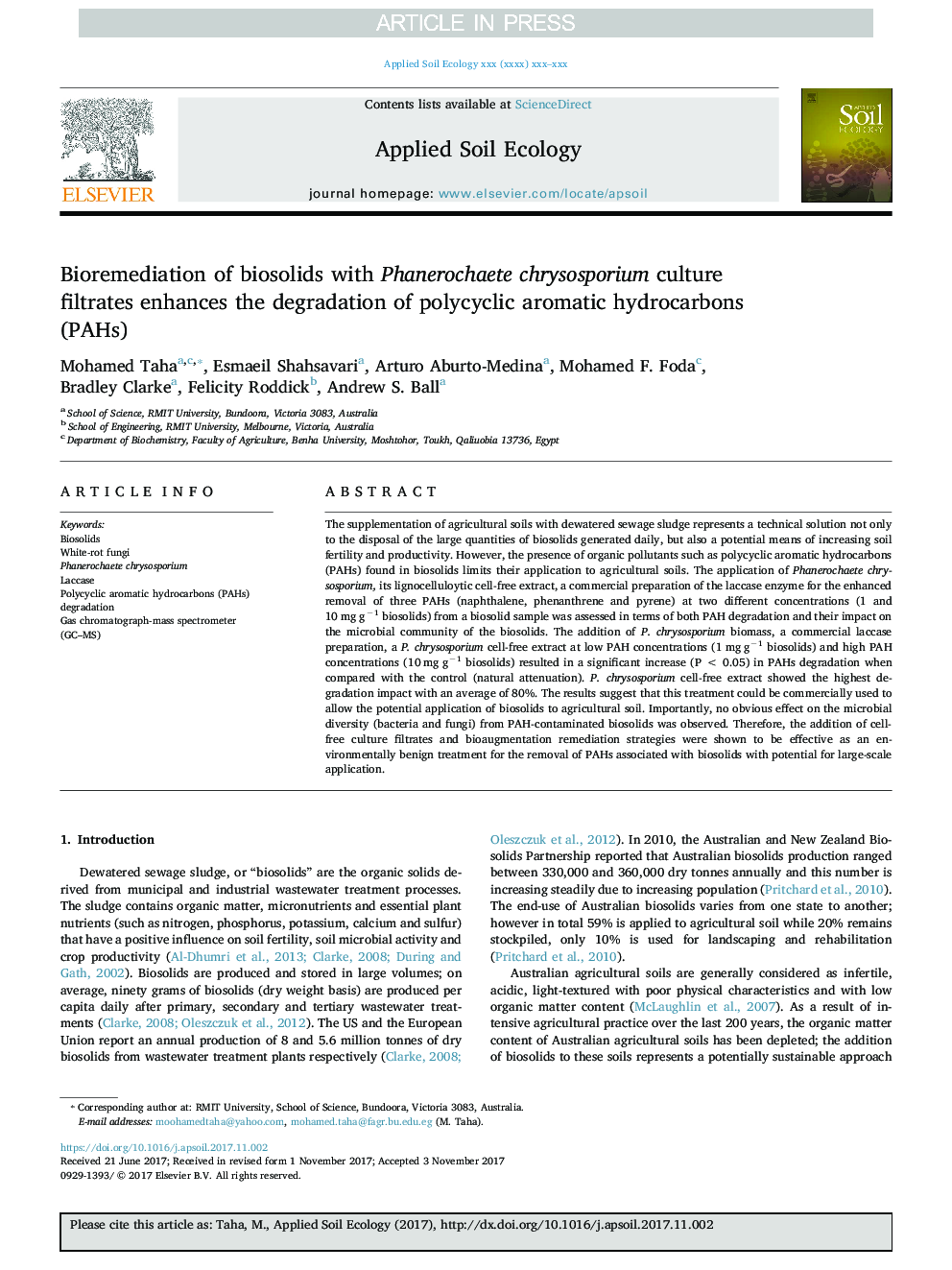| کد مقاله | کد نشریه | سال انتشار | مقاله انگلیسی | نسخه تمام متن |
|---|---|---|---|---|
| 8846779 | 1617759 | 2018 | 8 صفحه PDF | دانلود رایگان |
عنوان انگلیسی مقاله ISI
Bioremediation of biosolids with Phanerochaete chrysosporium culture filtrates enhances the degradation of polycyclic aromatic hydrocarbons (PAHs)
دانلود مقاله + سفارش ترجمه
دانلود مقاله ISI انگلیسی
رایگان برای ایرانیان
کلمات کلیدی
موضوعات مرتبط
علوم زیستی و بیوفناوری
علوم کشاورزی و بیولوژیک
بوم شناسی، تکامل، رفتار و سامانه شناسی
پیش نمایش صفحه اول مقاله

چکیده انگلیسی
The supplementation of agricultural soils with dewatered sewage sludge represents a technical solution not only to the disposal of the large quantities of biosolids generated daily, but also a potential means of increasing soil fertility and productivity. However, the presence of organic pollutants such as polycyclic aromatic hydrocarbons (PAHs) found in biosolids limits their application to agricultural soils. The application of Phanerochaete chrysosporium, its lignocelluloytic cell-free extract, a commercial preparation of the laccase enzyme for the enhanced removal of three PAHs (naphthalene, phenanthrene and pyrene) at two different concentrations (1 and 10 mg gâ1 biosolids) from a biosolid sample was assessed in terms of both PAH degradation and their impact on the microbial community of the biosolids. The addition of P. chrysosporium biomass, a commercial laccase preparation, a P. chrysosporium cell-free extract at low PAH concentrations (1 mg gâ1 biosolids) and high PAH concentrations (10 mg gâ1 biosolids) resulted in a significant increase (P < 0.05) in PAHs degradation when compared with the control (natural attenuation). P. chrysosporium cell-free extract showed the highest degradation impact with an average of 80%. The results suggest that this treatment could be commercially used to allow the potential application of biosolids to agricultural soil. Importantly, no obvious effect on the microbial diversity (bacteria and fungi) from PAH-contaminated biosolids was observed. Therefore, the addition of cell-free culture filtrates and bioaugmentation remediation strategies were shown to be effective as an environmentally benign treatment for the removal of PAHs associated with biosolids with potential for large-scale application.
ناشر
Database: Elsevier - ScienceDirect (ساینس دایرکت)
Journal: Applied Soil Ecology - Volume 124, March 2018, Pages 163-170
Journal: Applied Soil Ecology - Volume 124, March 2018, Pages 163-170
نویسندگان
Mohamed Taha, Esmaeil Shahsavari, Arturo Aburto-Medina, Mohamed F. Foda, Bradley Clarke, Felicity Roddick, Andrew S. Ball,